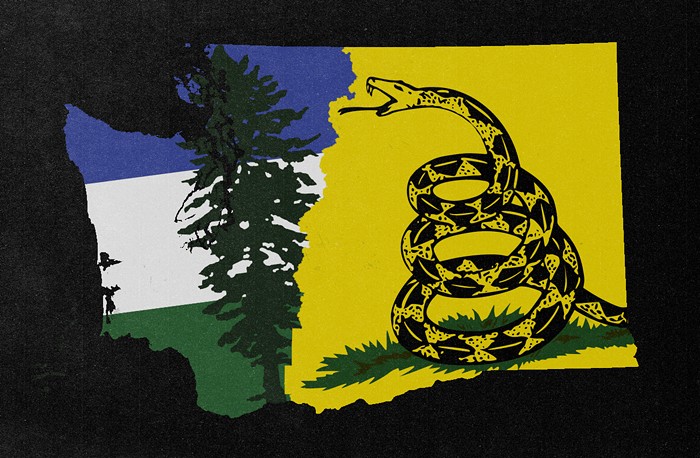
A new rule on political ad transparency takes effect in Washington State today, and in response Google has announced it will no longer be selling ads aimed at influencing this state's "ballot measures and state and local elections."
A spokesperson for Google did not immediately respond to a request for comment, but in a statement to GeekWire the company described the action as a "pause" so that Google can "assess the amended campaign disclosure law and ensure that our systems are built to comply with the new requirements."
Those new requirements, which can be read here, have been public since May 9, when they were unanimously approved by the Washington State Public Disclosure Commission.
Kim Bradford, spokesperson for the PDC, said no one from Google has contacted the agency about the rule change, which clarifies that digital platforms like Google and Facebook must comply with Washington State's unique law on political ad transparency.
“The requirement that commercial advertisers disclose information about political ads is not new," Bradford said. "If any commercial advertiser has concerns about its obligations, we hope it works with the PDC during this summer’s rulemaking process to offer suggestions that ensure timely and meaningful disclosure for the public.”
Indeed, the PDC's May 9 clarification came on top of statements from the PDC back in December of 2017 making clear that the agency believed Google should be following state disclosure laws.
Effective today, the May 9 rule from the PDC affirms the public's right to a significant amount of information on political ads aimed at influencing Washington State's elections—whether those political ads are delivered by television, radio, billboards, or "internet or digital advertisements."
That public right traces to a forward-thinking law that was overwhelmingly approved by Washington State voters in 1972.
In addition, the PDC's new rule affirms that Google and other sellers of political advertising must make information about political ads "available for public inspection" either "in person during normal business hours," or "electronically promptly upon request," or "online on the advertiser’s website."
It also says that for political ads, digital platforms must provide "an approximate description of the geographic locations and audiences targeted" and the "total number of impressions generated by the advertisement or communication."
Google has not been doing any of these things in Washington State, as I discovered back on December 1, 2017, when I went to Google's Seattle offices and asked for information on local political ads. In the six months since, the company has not provided me with any of the requested political ad information.
This week, Washington State Attorney General Bob Ferguson sued Google and Facebook citing my experience and other instances of lack of disclosure. Ferguson alleged that the companies have been failing to comply with state transparency law for a decade. "What’s happening now is not legal," Ferguson told The Stranger. "Not even close."
Since January 2008, the AG's lawsuit notes, Google has accepted $1.5 million to run political ads aimed at Washington's elections.
The company's failure to comply with state disclosure laws during that period, Ferguson alleges, was "negligent and/or intentional."
UPDATE: In a statement in response to Google's decision to stop selling ads in Washington State, Ferguson said:
I'm glad to see Google is taking our lawsuit seriously. In the future, if Google decides to accept money for Washington state elections, I will ensure Google complies with our state's longstanding campaign transparency laws.















